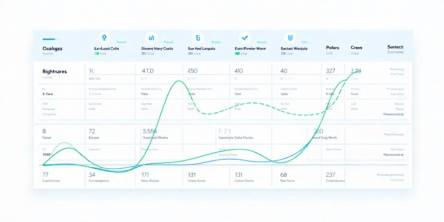What Are the Merits and Demerits of Android Apps

Android OS is the most famous operating system for smartphones. Android is backed by Google and this enhances its credibility. Android powers billions of smartphones, tablets, and smart devices. Android’s market is expanding and so is the android app usage and compatibility. Android apps have revolutionized the whole scenario by enhancing the B2C services, B2B services, and business intelligence services.
The Android app development became famous along with the popularity of the Android development. Android apps are basically internet applications that are designed to run on smartphones and other mobile devices. Android apps help users to connect to the internet services that are commonly accessed by desktops and laptops. Android apps are relatively faster, can predict user behavior if incorporated with Android Apps, and act as a great marketing tool for businesses intelligence services.
Users have become more impatient and demanding than ever. We do not want to turn on our laptops and desktops and wait for the booting process, access the internet, and so on. How good it be if there is no need to use desktops and most of the things can be done with the help of our smartphones. This will speed up the process and will save a lot of time. Android apps were developed keeping in mind this concept.
In this article, we are going to discuss some of the advantages and disadvantages that are based on the personal user experience. You will definitely relate to what we are discussing in the article.
Merits of Android Apps
1. Open Source
Android is an open-source operating system that needs no permissions, licensing, and royalty. Android is also having a good community base where developers share their ideas, innovations to enhance the Android platform. Also, the architecture of Android SDK is open source that means you can interact with the community for future development in the Android applications.
2. Better Personalization
For providing a better user experience, mobile apps make use of personal data. Various applications like banking, finance, social media require personal information and this can be quite invasive if the data gets leaked and goes into the wrong hands. However, most of the apps ask for our permission to get access to personal data. It is up to us if we allow it or not.
Android apps provide better personalization. Mobile apps can tailor the data shown to the customer based on previous searches, likes, dislikes, geographical area, gender, and many more using artificial intelligence recommendation systems. Personalization of the content is critical in providing a better user experience. Mobile apps allow the user to set the preference based on which it can serve the most related content. Mobile apps are not only helpful to the users but also to the businesses as apps have been shown to improve the conversion rate.
3. Sending Notifications
E-Mail marketing was one of the most effective tools in the hand of digital marketers. But the excessive use of E-mail marketing has led to lessening its effectiveness. The conversion rate and click-through rate have considerably decreased in the past few years. The mobile app notification is a better alternative for sending the notifications. There are two types of notifications in android apps: push notifications and in-app notifications. Push notifications are independent of app usage. They can be shown even if the user is not doing any activity on the mobile device. On the other hand, in-app notifications are shown when the user opens the app.
4. Apps Make use of Mobile Features
Android phones come with a lot of features. Mobile apps can make use of features like a camera, GPS, bar code reader, scanner, voice recorder, and whatnot. These apps help to reduce the efforts in performing the tasks. For example, while filling a signup form, it may ask for the photograph of the user. So, instead of browsing and uploading the photograph, the user can click the image from the camera and upload it.
5. Easy to Integrate
Android apps can be easily integrated on the cross-platform. Android developers have the liberty to make changes in the platform according to the business needs as the whole platform is customizable. Android provides a platform that allows running background processes to enhance the multitasking and performance of the apps.
Every coin has two sides. With advantages, there come several disadvantages too. Let us discuss them in brief.
Demerits of Mobile Apps
1. Marketing the Mobile Application
After the app is developed, it is necessary to market the app so as to get a place in the user’s device. There are a lot of apps that are already available in the market. Also, why would a user like to stuff his phone with a hell of lot of apps? This is one big disadvantage of using android apps. Businesses intelligence companies have to create the demand for the app and market the app through various channels.
2. Use of Personal Information
For providing a better user experience using recommendation engines, mobile apps make use of personal data. Various applications like banking, finance, social media require personal information and this can be quite invasive if the data gets leaked and goes into the wrong hands. However, most of the apps ask for our permission to get access to personal data. It is up to us if we allow it or not.
3. Apps Drain battery and use Resources
Android apps have a bad reputation for draining the battery and using the useful resources of the Android device. Android apps keep running in the background and drain the battery of the device. However, the new app is made keeping in view the resource usage and optimizing the resources while the operation of the application.
Some other disadvantages are:
They are expensive and add costs to the businesses.
They are not easy to optimize as compared to mobile websites.
Apps need to be updated regularly both through an app development point of view as well as a fresh content point of view.
Conclusion
Android app development involves a huge amount of money as well as resources. So, it is important to carry out research before you develop the android application. However, the merits of using mobile apps outweigh the demerits by a great margin. But apps need to improve in certain areas for sure. Mobile apps have a lot of potentials to provide a better user experience and better business outreach. Artificial intelligence applications in Android apps can take the Android app development to the next step.
Similar Articles
Building lending software isn’t just a technical project—it’s a business decision. Whether you're a fintech founder or part of a traditional lending institution trying to go digital, three questions will shape everything that follows
Learn why robust security is crucial for super app development. Explore key strategies and best practices for mobile app development security.
Walkie-talkies with an extensive reception capacity have changed significantly when it comes to portable communication by displaying cutting-edge features with seamless connectivity that covers more than just the state
USB-C technology has revolutionized the way we charge our devices, offering faster charging speeds, higher power delivery, and universal compatibility across multiple devices
Discover expert mobile app development strategies to create a viral app that attracts users and boosts engagement
Optimize app localization for iOS users across the EU with language, cultural, and regulatory adaptations. Engage users and boost retention with these tips!
Discover the top 10 mobile app development trends of 2024! Explore 5G, AI, AR/VR, blockchain, and more to stay ahead in the ever-evolving app development landscape.
With its triple-lens design and fantastic photo and video quality, the iPhone 11 Pro Max is extensively acknowledged for its superior camera system. But problems can occur with also one of the most advanced technologies. If you're having issues with the iPhone 11 pro max camera lens, knowing the typical problems and how to repair them
Protect your app from threats with AppSealing's robust, all-inclusive security solution. Safeguard user data, ensure compliance, and maintain top performance.









